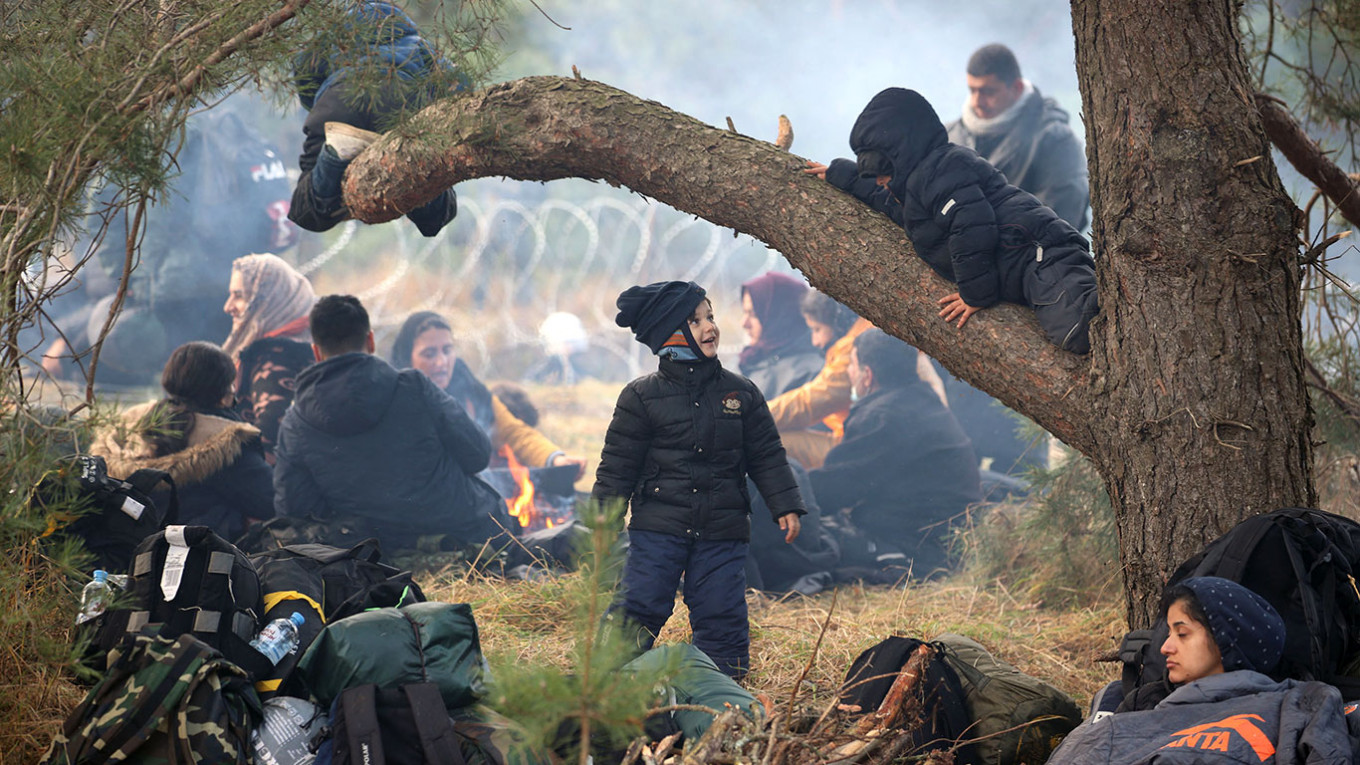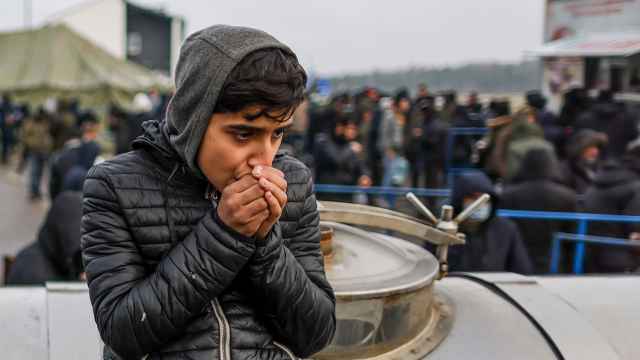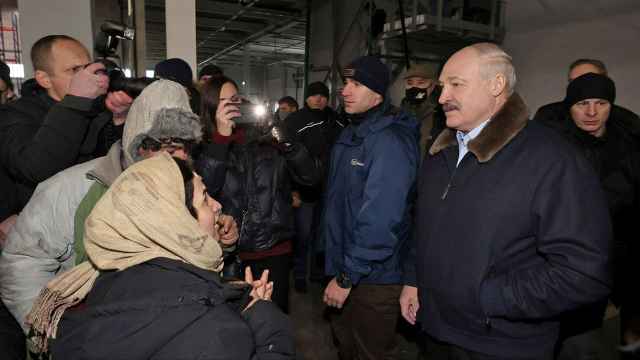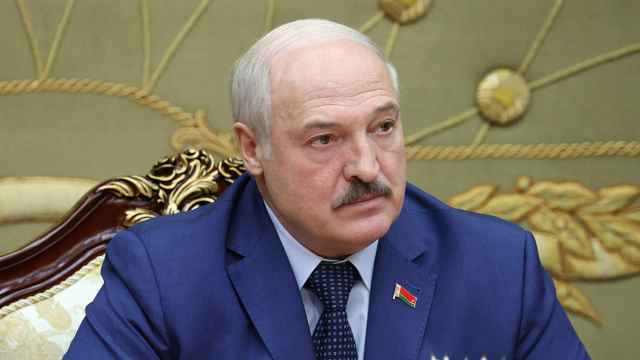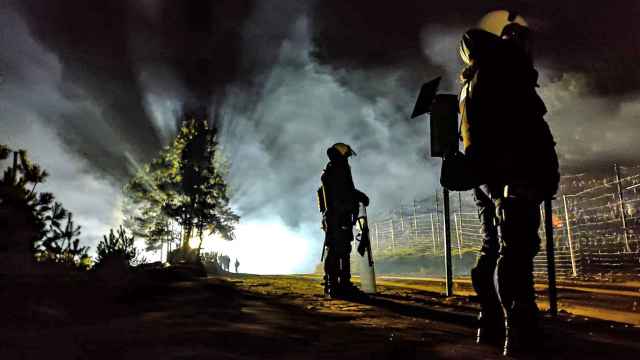Poland and Belarus squared off on Tuesday over thousands of migrants aiming to enter EU member Poland, with Warsaw saying the wave threatened the security of the entire bloc.
Minsk warned against "provocations" on the border, where armed troops from both countries are deployed amid escalating tensions.
Trapped between the rhetoric are thousands of people, many escaping war and poverty in the Middle East, trying to survive outdoors in squalid conditions as temperatures dip toward freezing.
The European Union accuses Belarus strongman President Alexander Lukashenko of orchestrating the crisis in retaliation for Western sanctions on Minsk, charges that he denies.
On Monday Poland blocked a bid by hundreds of migrants to breach the razor-wire border fence as thousands more massed in the area.
Polish Prime Minister Mateusz Morawiecki said on Tuesday that Warsaw would continue to turn the migrants away.
"Sealing the Polish border is our national interest. But today the stability and security of the entire EU is at stake," Morawiecki said on Twitter.
"This hybrid attack of Lukashenko’s regime is aimed at all of us. We will not be intimidated and will defend peace in Europe with our partners from NATO and EU."
Belarus hit back, with the defense ministry calling the allegations "unfounded and unsubstantiated" and accusing Poland of "deliberately" escalating tensions.
It said that Poland had deployed 10,000 military personnel to the border without giving prior warning to Belarusian authorities, in what it said was a violation of joint security agreements.
"We would like to warn the Polish side in advance against any provocations directed against the Republic of Belarus to justify illegal use of force against disadvantaged, unarmed people, among whom there are many children and women," the foreign ministry said in a statement.
Meanwhile Poland's defense ministry tweeted out video footage on Tuesday morning showing what it said appeared to be a "large group of Belarusian officers" approaching the vicinity of the migrants camps near the Polish border village of Kuznica.
The latest grim chapter of Europe's migrant crisis saw Washington and Brussels call on Minsk to stop what they describe as an orchestrated influx.
NATO on Monday also hit out at Minsk, accusing the government there of using the migrants as political pawns, while the European Union called for fresh sanctions against Belarus.
Caught in the middle
Many of the migrants and refugees seeking entry into Poland are desperately fleeing war and poverty-wracked countries in the Middle East.
They say they are stuck between a rock and a hard place, with the Belarusian side refusing to allow them to return to Minsk and fly home, while Poland does not let them cross and make asylum claims.
Polish regional police tweeted video footage of migrants sitting around tents and campfires on the other side of the razor fence, as a wall of Polish officers looked on.
"According to our estimates, there could even be 12,000-15,000 migrants in Belarus," Polish special services spokesman Stanislaw Zaryn told Polish radio.
Some 4,000 were estimated to be massed near Kuznica close to the Belarusian border, the services said on Tuesday.
Belarus state news agency Belta's correspondent said about 3,000 people were in a camp near the border.
Polish government spokesman Piotr Muller had warned Monday that "there may be an escalation of this type of action on the Polish border in the near future, which will be of an armed nature."
Belarusian interior minister Ivan Kubrakov told the state-run news agency Belta Tuesday that the migrants were in the ex-Soviet country "legally," adding: "there have been no violations of the law on the part of migrants so far."
A Message from The Moscow Times:
Dear readers,
We are facing unprecedented challenges. Russia's Prosecutor General's Office has designated The Moscow Times as an "undesirable" organization, criminalizing our work and putting our staff at risk of prosecution. This follows our earlier unjust labeling as a "foreign agent."
These actions are direct attempts to silence independent journalism in Russia. The authorities claim our work "discredits the decisions of the Russian leadership." We see things differently: we strive to provide accurate, unbiased reporting on Russia.
We, the journalists of The Moscow Times, refuse to be silenced. But to continue our work, we need your help.
Your support, no matter how small, makes a world of difference. If you can, please support us monthly starting from just $2. It's quick to set up, and every contribution makes a significant impact.
By supporting The Moscow Times, you're defending open, independent journalism in the face of repression. Thank you for standing with us.
Remind me later.


